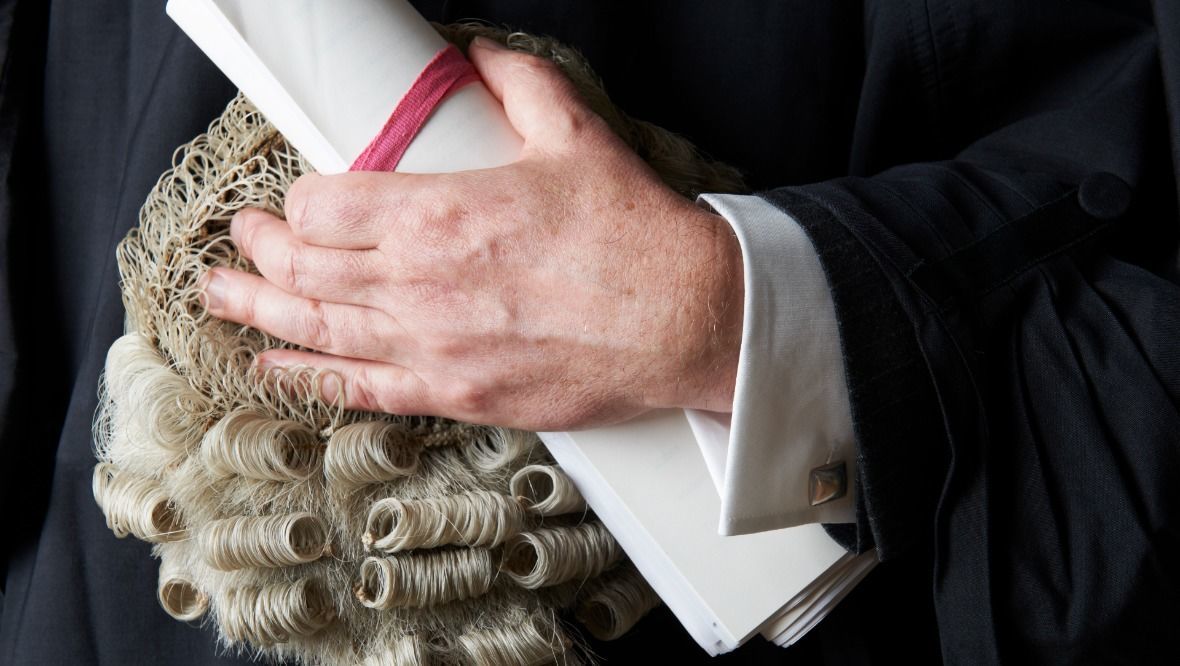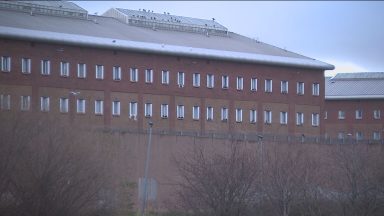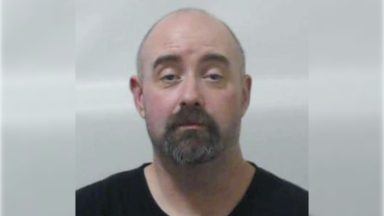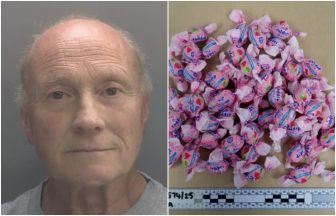Leading Scottish lawyers have condemned plans for trials to be conducted by a single judge without a jury as part of landmark reforms to the country’s justice system.
The Victims, Witnesses and Justice Reform (Scotland) Bill published on Wednesday unveiled changes set to sweep Scottish courtrooms, including scrapping the not proven verdict, changing the size of criminal juries from 15 to 12 and creating a new specialist sexual offences court.
The single-judge trial pilot, recommended by the Scottish Government’s Dorrian Review into Improving the Management of Sexual Offence Cases, stemmed from concerns that juries may not base their deliberations on an objective view of evidence and may be influenced by “rape myths” and misconceptions around consent.
The Bill recommends trials that meet specified criteria are, for a set period, conducted without a jury and cases will be decided at a judicial level.
But some lawyers have told STV News their clients won’t be participating in the pilot.
‘Not in the interests of justice’
Defence lawyer Matthew McGovern of leading law firm McGovern Reid confirmed it would “not be accepting instructions in any case forming part of the pilot”.
He added: “No client of McGovern Reid will be ever exploited as part of a social experiment to satisfy the demands of the special interest groups. This pilot is not in the interests of justice.”
Mr McGovern told STV News the pilot scheme is “unjust and unfair”.
He said: “I’m not against changes to the criminal justice system, but everybody making an accusation and the accused has to have confidence in the fairness of the process.
“They have to have a mechanism to give their evidence and their story in a manner compatible with well informed practice. That’s the danger of the Bill.
“It’s too important to experiment in the manner the Scottish Government seems to be proposing. The fairest possible system is trial by jury.
“A jury comes together with collective life experience, issues of unconscious bias are mitigated against a cross-section of society, ethnicities and gender, socio-economic background. That system is infinitely better than relying on a single judge to make that decision.
“If there’s a system tilted towards a particular outcome, it ceases to be a fair system, it’s rigged.
“People in Scotland want a fairer system, if they or a friend or relative were in the dock they would want the system to be fair. Juries are the best way to protect that.”
‘The jury system either works for all offences or doesn’t’
Solicitor Advocate Murray Macara, from Beltrami & Co, also cautioned over the introduction of single-judge trials.
“I personally object and oppose it,” he said.
“It’s very difficult for any lawyer to assess the strength of the case evidence on a knife edge. Very often you can’t tell whether the jury prefers one person’s evidence versus that of another.
“There is clearly a political dimension to this to secure higher conviction rates. One way to do that is the use of single-judge trials.
“I can’t believe for one minute a single criminal defence solicitor would put their client forward for a first single-judge trial. I suspect that decision will be made at a judicial level.”
Solicitor Advocate Ross Yuill, on the executive board for the Scottish Solicitors Bar Association, said there are “significant concerns” around the reforms.
He said: “The concern is raising serious questions around fairness in the criminal justice system.
“We’re concerned by the suggestion that juries are in some way unable to be considered competent to deal with sexual offences but could be trusted to deal with offences such as murder.
“In short, either the jury system works for all offences or it doesn’t. There should be no distinction based on the types of cases being prosecuted.
“Proposals to make such a fundamental change to the courts system – where the stated aim is increasing conviction rates – is extremely concerning. We are of the view it should be opposed.”
He also suggested that concerns raised by groups working in criminal courts “have been ignored”.
“It would appear there was a decision to ignore the collective view of the legal profession, along with the fact it doesn’t appear to have been the views of a significant number of people who have sat as jurors considered in this process.”
Previously, the Law Society warned there could be an increase in miscarriages of justice if not proven is scrapped as a verdict and single-judge trials introduced.
Murray Etherington, the society’s president, said: “The right to a fair trial is a cornerstone of the Scottish criminal justice system. Even on a pilot basis, judge-only trials will put that fundamental right in jeopardy with no discernible benefits.
“By its very definition, a jury is a better reflection of Scottish society than a single judge can possibly be. Juries act as an essential and effective safeguard against the potential for unconscious biases to unfairly influence trial outcomes.
“Undermining the foundations of the Scottish justice system to increase conviction rates is a dangerous approach which will create a serious risk of injustice.”
‘A bold, necessary and important bill’
Lawyers may be concerned but the new legislation has been welcomed in other quarters.
The Bill is primarily aimed at increasing the country’s low conviction rate for serious sexual offences.
Around half of rape and attempted rape trials result in a conviction, with the overall conviction rate in trials standing at about 90%.
Furthermore, rape and attempted rape trials have also been far more likely to end in a not proven verdict than trials for other offences.
There were 2,176 rapes and attempted rapes reported to the police in 2020/21, but only 152 prosecutions and just 78 convictions.
Rape Crisis chief executive Sandy Brindley said: “So often, survivors tell us how traumatising and difficult going through the justice system can be. We very much hope this bill will go some way to changing that reality
“In Scotland, conviction rates for rape are the lowest of any crime. For cases that reach trial the conviction rate is around 51% compared to 91% for all other crimes.
“There is significant evidence that myths about sexual violence influence juries in their decision making. There is a huge amount of research and evidence to suggest that these steps will not only make engaging with the justice system easier for survivors but lead to more justice being done.
“Proposals including the ending of the not proven verdict, the introduction of a specialist sexual offence court, anonymity for complainers in sexual offence cases, the potential for judge led trials and independent legal representation will make a material difference to how survivors access justice.
“Making the decision to report sexual violence can be very difficult. We hope this bill will help to make this decision somewhat easier.
“But this is not a perfect bill. We have concerns about its proposed changes to jury majority from eight out of 15, to eight out of 12. We know that juries are reluctant to convict in rape cases, and any change in jury majority could have a significant impact on convictions.
“Notwithstanding our concerns about the change in jury majority, that fact that these proposals have been made by the Scottish Government is testament to the incredible work of survivors from across Scotland who have campaigned for change. This is a bold, necessary, and important bill.”
Glasgow advocate Edith Forrest told Scotland Tonight: “Basically, we’re being told we can trust you with a murder trial but not to be trusted with a sexual offence.
“The appeal court regularly tell lawyers that juries are to be trusted. That’s certainly my experience.
“It is part of somebody’s civic duty to come sit as a juror.
“In my jury speeches I say ‘You’re asked to come here with your life experience, with your knowledge of life and apply that to this case.’
“Juries range across age and social diversity, all sort of of different diverse aspects of life and they bring that to bear upon a trial.
“It’s a myth to say there’s a jury myth.”
‘Ensuring needs of victims are at heart of justice system’
Justice secretary Angela Constance said the timing of a pilot of single-judge trials will depend on how the Bill passes through Parliament.
She said: “This Bill is about ensuring that the voices and needs of victims are at the heart of our justice system.
“There is substantial evidence that the not proven verdict in many instances retraumatises victims and survivors because of its lack of clarity.
“While we are proud of our justice system in Scotland, we do need to make sure that our system reflects the needs of modern-day Scotland and I don’t think it is defensible any longer to have a not proven verdict where there is no statutory definition.”
Constance continued: “It has taken a long time to get to this point. This is landmark legislation.
“This Bill has some of the biggest reforms for our justice system in the history of devolution.”
Follow STV News on WhatsApp
Scan the QR code on your mobile device for all the latest news from around the country




























